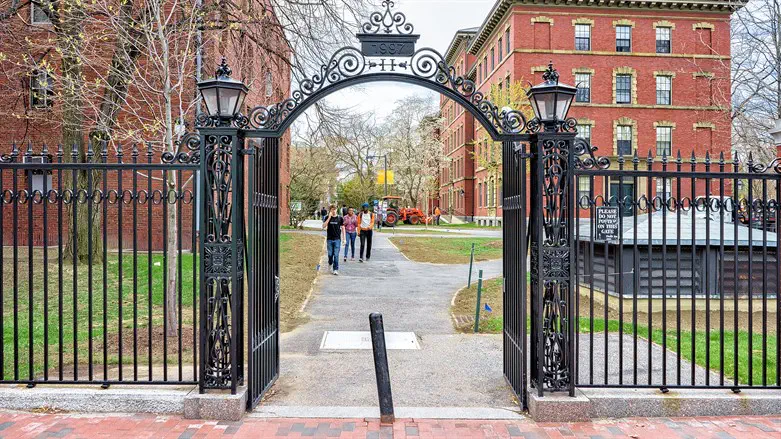
Harvard University’s Hillel chapter noted that the start of the campus Palestine Solidarity Committee’s “Israeli Apartheid Week” on Sunday yet again featured a hateful art installation referred to as an “apartheid wall.”
Harvard Hillel Israel Chair Daniel Denenberg, Hillel Intern for Combating Antisemitism Sabrina Goldfischer, and Hillel President and Crimson Editorial editor Jacob Miller described in an email sent to Hillel affiliates that the wall was “offensive,” The Harvard Crimson reported.
“We’re emailing you because in previous years this wall has been a talking point for much of Harvard’s Jewish community. For some Jews, it has also been painful and offensive,” they wrote. “However much you care, Israel is the world’s only Jewish state. It is our historic homeland. It has held together our people and shaped our culture and practice for eighty generations.”
“We therefore unambiguously reject the PSC’s characterization of Zionism as racist or colonialist,” they said.
The “apartheid wall” promotes the BDS movement and features multiple panels containing anti-Israel propaganda, including claims that Israel only exists because of “racism, colonialism and ethnic cleansing.”
One of its panels consists of black and white imagery that Hillel described as “reminiscent of the Holocaust concentration camps for many last year.”
The co-president of Harvard Israel Initiative, Sarah Bolnick, told the campus newspaper that the installation is “a form of hate speech” and is “very offensive and aggressive.”
“At Harvard Hillel we welcome a variety of views on Israel and believe that dialogue and debate are vital when discussing such a complex issue,” Miller told The Crimson. “But ridding our discussions of substance and throwing around inaccurate buzzwords to describe a complicated situation is counterproductive and immature.”
In December 2022, Harvard was ranked first among American universities for antisemitism.
The AMCHA Initiative, which tracks campus antisemitism, issued a report covering the 2021-2022 school year. It quantifies threats to Jewish identity, explained as the redefinition, denigration and suppression of Jewish identity. Amcha’s study shows a coordinated attempt to redefine for Jews what it means to be Jewish and what acceptable Jewish expression entails.
Harvard, with 25 incidents, topped every category in the report.
